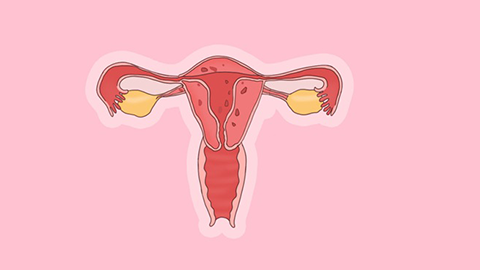What are the symptoms of endometriosis?
Generally, the main symptoms of endometriosis include dysmenorrhea, increased menstrual bleeding, dyspareunia, infertility, and pelvic pain. If discomfort symptoms occur, it is recommended to seek timely diagnosis and treatment at a regular hospital. Detailed analysis is as follows:
1. Dysmenorrhea
Ectopic endometrial tissue bleeds with the menstrual cycle, and accumulated blood in the local area triggers an inflammatory response, stimulating surrounding tissues and nerves, leading to dysmenorrhea. Patients often begin experiencing pain 1-2 days before menstruation starts, with intensified pain during menstruation. The pain is typically located in the lower abdomen and lower back; in some cases, it may radiate to the vagina and inner thighs, gradually subsiding after menstruation ends.

2. Increased menstrual bleeding
Ectopic endometrial tissue may impair normal uterine contractions or cause a relatively increased endometrial surface area, affecting coagulation function, resulting in increased menstrual bleeding. Patients experience significantly heavier bleeding during menstruation than usual, and some may have prolonged menstrual periods lasting more than 7 days. Long-term heavy bleeding may lead to symptoms such as dizziness and fatigue due to anemia.
3. Dyspareunia
If ectopic endometrium grows in areas such as the rectouterine pouch or posterior vaginal fornix, the penis may hit or compress the lesion during sexual intercourse, stimulating surrounding sensitive tissues and causing dyspareunia. Patients may feel pain in the lower abdomen or pelvic region during sexual activity, with pain severity increasing along with lesion severity. Severe cases may lead to aversion to sexual intercourse.
4. Infertility
Ectopic endometrium may adhere to the ovaries and fallopian tubes, affecting ovarian ovulation function and fallopian tube patency, hindering the union of egg and sperm as well as transport of the fertilized egg. Additionally, local inflammatory responses may affect endometrial receptivity, reducing the probability of conception and leading to infertility. Some patients who have been trying to conceive for a long time fail to achieve pregnancy and are later diagnosed with endometriosis.
5. Pelvic pain
Chronic inflammation caused by recurrent bleeding from ectopic endometrium can lead to adhesions and congestion of pelvic tissues, stimulating pelvic nerves and causing pelvic pain. Patients may feel a sensation of pressure or dull pain in the lower abdomen without a clear pattern. Pain may worsen after physical exertion, around the menstrual period, or after sexual intercourse, and severe cases may affect daily activities.
If the above symptoms are noticed, it is important to keep warm during menstruation, avoid strenuous exercise and excessive fatigue, maintain emotional stability, reduce mental stress, follow a light diet avoiding spicy and cold foods, adhere to prescribed medical treatments including medications or surgery, and undergo regular follow-up examinations to prevent worsening or recurrence of the condition.






